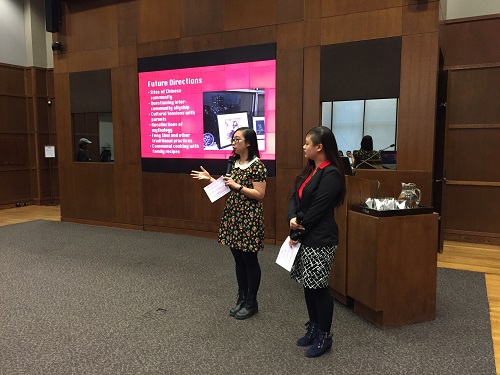Unsafe factory conditions for garment workers in Bangladesh. Barriers to education among the children of migrant labourers in China. Preventable child malnutrition in Myanmar. These are just some of the serious issues affecting millions of people in Asia today. As a leading research institution, the University of Toronto teaches our students how to study the complexity of these problems, which certainly do not have easy solutions. But the Asian Institute (AI) at the Munk School of Global Affairs takes it a step further. The AI aims to get students to Asia so they can come to understand Asian sites – both the problems they face and the opportunities they offer – from a local perspective, giving students the building blocks and inspiration needed to make a real difference.
The Richard Charles Lee Big Ideas Competition, launched in fall 2015, embodies this aim. The Asian Institute invited U of T students from across disciplines and degree programs in the Faculty of Arts and Science to come up with an idea for a creative, social entrepreneurial, innovative project that takes what they’ve learned about contemporary Asia through their academic studies to solve a problem, spread an idea, or make a difference.
According to Halbert Professor of Innovation, Joseph Wong, “The University has to keep with the times. It remains an important place for students to learn, but more critically, an important experience through which to cultivate their curiosity about the world around them. This curiosity drives ideas that have the potential to improve our world. We at the University of Toronto need to nurture this curiosity.”
Through sessions and workshops throughout the year, students in the competition developed and honed their Big Ideas, receiving advice and feedback from professors as well as experts in journalism, entrepreneurship, project management, marketing and PR, and education in preparation for The Final Pitch.

For Collaborative Master’s Program in Asia-Pacific Studies students David Tobiasz, Zitong Li, and Melody Liang, the competition afforded a meaningful opportunity: “We were deeply inspired by our professors at the University of Toronto and the way they extend their scholarship beyond campus to effect change in the world at large.”
On Monday, April 11, nine teams presented their Big Idea to a panel of judges, made up of Joseph Wong (Roz and Ralph Halbert Professor of Innovation, Munk School of Global Affairs; Professor and Canada Research Chair, Department of Political Science), Teresa Kramarz (Director, Munk One Program, Munk School of Global Affairs), and Melinda Jacobs (U of T alumna; Co-founder, Lucent Sky).
A total of $25,000 in funding was distributed to five winning teams: Upward (a mentorship program for migrant youth in Beijing), Umbrella Project (an initiative to educate consumers about safety conditions in garment factories so they can make informed purchasing decisions), Red Pocket (a production company aiming to foster online dialogue between Chinese diasporic youth and their mainland peers), Evaporative Cooling Vests: Aegis (an initiative to improve safety conditions for South Asian migrant workers in Qatar), and Air4Kids by Cleanopy (which has developed affordable mobile air purification devices for infants and children in Delhi).
Whether or not students walk away from the competition with an award, it serves as a valuable learning experience. For first year student Jillian Sprenger, “the sessions leading up to the final pitch made all the difference in taking my idea from the early stages to a polished final presentation. I know I will apply the tools I learned about in the Project Management workshop to all of my studies and future projects.”
Justin Kong, a Master’s student in Sociology, recounted that “the most valuable thing I’ve learned over the process of refining my idea is the importance of thinking extensively, how to seek out expertise and knowledge, and how to communicate complex ideas in an effective and clear manner.”
Even those teams that did not receive funding remain passionate about their project goals and plan to continue developing and strengthening their proposals.
Professor Wong reminded audience members at the Final Pitch that “the motivation behind this program is to impart students with the audacity to innovate.” That spirit had clearly taken hold among participants. Thanks to an anonymous donation, the competition will become an annual offering at the Asian Institute.

